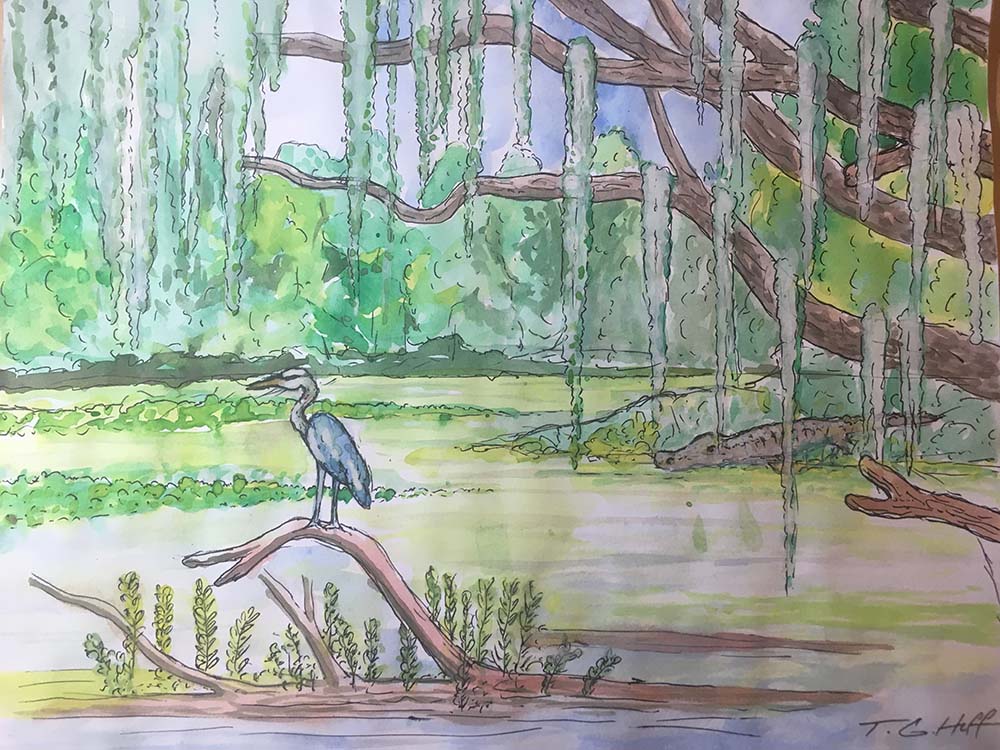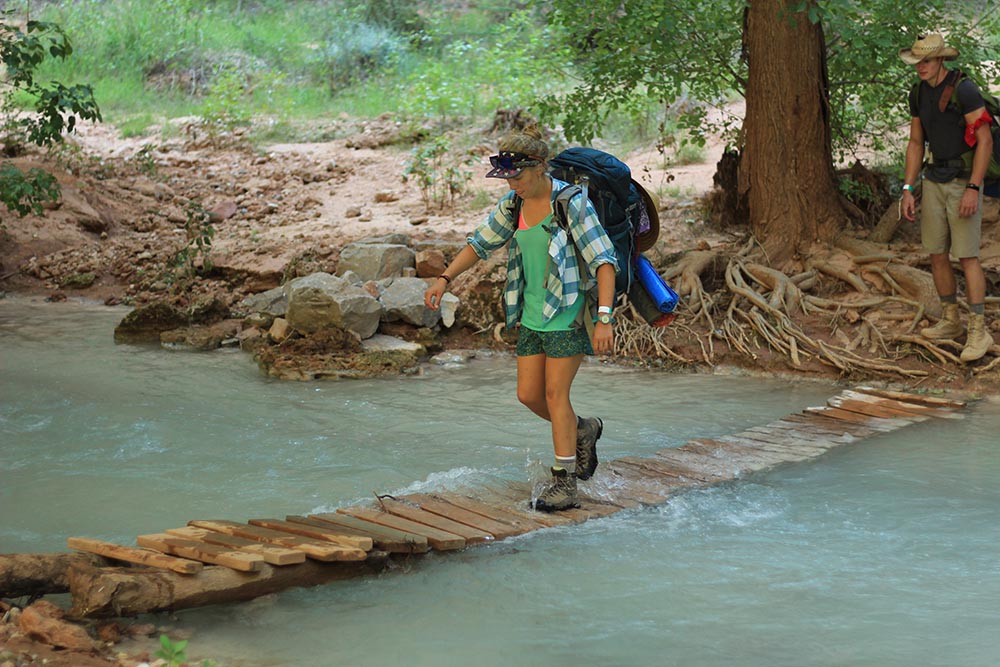Outdoor rec programs are one thing many states have encouraged their constituents to engage in over the course of the pandemic as a means to get out of the house and maintain physical activity.
However, with many collegiate recreation programs and campuses restricting programming, group outdoor activities have been hard to get off the ground across the nation causing professionals to get creative in their semester offerings.
Andrew Huff, the assistant director for Outdoor Rec at the University of Arizona, is no stranger to adaptability and challenge. A former Fire Direction Center Chief with the United States Marine Crops, Huff offers a unique view to campus recreation and collegiate engagement. In a time when many programs are struggling to stay afloat, he has been able to pivot and continue offering engaging programs to the Tucson community while introducing Outdoor Rec to the virtual reality of the pandemic.
Here are just a few of the amazing offerings and experiences Huff has been able to implement over the course of the year.
Student Development: Sharing Staff
With the University of Arizona going to remote learning for most programs during the Fall 2020 semester, many students decided to either stay home or take a break from their studies. While the University of Arizona Campus Recreation facility reopened with COVID guidelines in late August, the Facilities team found themselves in need of student staff. Plus, many program areas found themselves with less hours to offer to student staff.
During the first phase of reopening, programming was halted, and many student staff were going to experience a potential drop in hours. With a student-first mindset, Huff was quick to get creative on how his staff could adapt and assist the department. The Outdoor Rec student staff can now be found all across the building; two new jobs include:
- Keeping count of spaces for capacity
- Weight room attendants
This has not only helped the students stay engaged but has helped the department with staffing areas and eliminate the need to hold larger hiring sessions.
“Honestly, sharing staff has helped not only the Rec center as a whole, but the Outdoor Rec program itself,” said Huff. “Often outdoor programs have the reputation of being different or a subset of a larger rec center. This really helped break those barriers down. It also helped the program itself recruit future staff and get our name out there.”
Outdoor Rec Programs: The Bouldering Wall
Utilizing IMLeagues, Huff has been able to keep the outdoor bouldering wall at Campus Recreation safe and highly utilized. Offering times on Monday and Wednesday evenings, Outdoor Rec has kept the engagement with the climbing community that has been seeking opportunities to continue recreating while other climbing facilities remain closed.
Safety procedures in place to remain open are:
- Keeping the capacity limited
- Marking routes
- Requiring masks
By staying open, the Outdoor Rec program has been able to fill a void that many climbers have been experiencing with so many climbing walls closing around the city.
“IMLeagues wasn’t my first thought,” said Huff. “Admittedly, I had little experience using it before COVID. I’m thankful my aquatics colleagues suggested it as it turned out to be one of the most successful adaptations. Because of the reservation system, we are able to offer a safe climbing opportunity that our in-town gyms have now adapted. It also has benefitted us by having a greater ability to quantify the use and demand of the bouldering wall, something that was far more elusive before the pandemic.”
Outdoor Rec Programs: Nature Through Art
One of the more creative aspects of the Outdoor Rec program has been the implementation of a “Nature Through Art: Drawing and Watercolor Class” formed as a relationship between Campus Recreation and Artworks, an outreach program at the university.
In this virtual offering, an instructor will start with a reference photo of nature and break down the process through engaging the group to build confidence and art skills while completing a new illustration each week. This course is designed to appeal to individuals of any experience in art and offers multiple sessions for registration.

“Not exactly a traditional outdoor program offering per se, but it works for us,” said Huff. “It has been interesting to see it develop. Our programs are open to the general public and this one has resonated beyond just students. Last fall we had some retirees in their mid 70s and young professionals join us. The conversations about life, sharing experiences as they paint — I think the participants came away with a lot more than new painting skillsets.”
Bike Maintenance Nights
With the sun almost always shining, Tucson has a strong biking community. In fact, Tucson is a gold-level — ranking No. 2 — bike-friendly city with protected bike lanes on-campus, downtown and throughout the city.
Having a safety-first mindset and continually meeting the community where they are, Huff has developed a virtual bike maintenance series to help educate riders of all levels on the importance of maintaining your equipment. This course is designed to instruct the basics of bike mechanics from the safety of your own home with each lesson being a standalone topic. From tires, tubes and patches to gears and shifters, this offering will cover the most commonly experienced issues with bicycles and educate users on how to fix the issues themselves.
EXTRA CREDIT: A bike shop can benefit your rec center. Here’s how it’s worked at Kennesaw State University.
“This concept came from a couple of our students,” said Huff. “We were trying to devise how to have staff training for our newest bike mechanics via Zoom when one piped up that this would be a cool class to take. Two weeks later, we now run staff training concurrent with the virtual bike maintenance classes. It expanded our offerings while not incurring any costs to participants or the program.”

Keeping your staff and community engaged has been a struggle for many professionals. However, thinking outside the box and getting creative is key to navigating the pandemic. These unique experiences have opened a whole new community to the Outdoor Rec program that hopefully will participate in other programming once things start getting back to some sense of normalcy.
If you are interested in learning more about Huff’s program or are looking to get more ideas on how to engage your campus, be sure to check out the University of Arizona Outdoor Rec’s website.
Images courtesy of the University of Arizona










